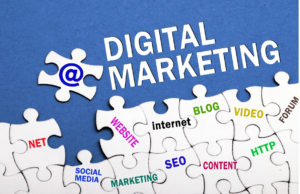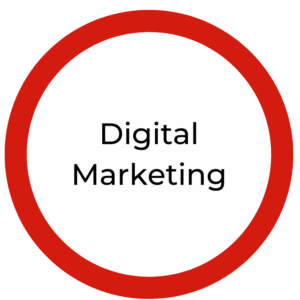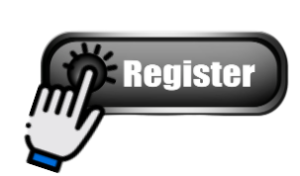Google Digital Marketing Career Certificate


About this Professional Certificate
Prepare for a new career in the high-growth fields of digital marketing and e-commerce, in under six months, no experience or degree required. Businesses need digital marketing and e-commerce talent more than ever before; 86% of business leaders report that digital commerce will be the most important route to growth. There are 218,000 U.S. job openings in this growing field, with a median entry-level salary of $51,000.¹
Throughout this program, you will gain in-demand skills that prepare you for an entry-level job and learn how to use tools and platforms like Canva, Constant Contact, Google Ads, Google Analytics, Hootsuite, HubSpot, Mailchimp, Shopify, and Twitter. You will learn from subject-matter experts at Google and have a chance to build your own portfolio with projects like customer personas and social media calendars to show to potential employers.
his program includes over 190 hours of instruction and practice-based assessments, which simulate real-world digital marketing and e-commerce scenarios that are critical for success in the workplace. The content is highly interactive and developed by Google employees with experience in the field.
Skills you’ll gain will include: Developing digital marketing and e-commerce strategies; attracting and engaging customers through digital marketing channels like search and email; measuring marketing analytics and sharing insights; building e-commerce stores, analyzing e-commerce performance, and building customer loyalty.
Platforms and tools you will learn include: Canva, Constant Contact, Google Ads, Google Analytics, Hootsuite, HubSpot, Mailchimp, Shopify, and Twitter
Through a mix of videos, assessments, and hands-on activities, you’ll learn how to use popular tools and platforms required for an entry-level job. Learn concrete skills that top employers are hiring for right now.
There are 7 Courses in this Professional Certificate
COURSE1
Foundations of Digital Marketing and E-commerce
This is the first of seven courses in the Google Digital Marketing & E-commerce Certificate, which will equip you with the skills you need to apply to entry-level roles in these fields. People who work in digital marketing and e-commerce help their organizations attract new customers, engage customers through various digital channels, and drive transactions like purchases and customer loyalty. In this course, you’ll explore entry-level jobs in digital marketing and e-commerce and identify the roles and functions that those jobs play within an organization. You’ll also learn about the marketing funnel and how it shapes the customer journey.
Google employees who currently work in the field will guide you, providing hands-on activities and examples that simulate common digital marketing and e-commerce tasks, and helping you build your skills and prepare for the job. Learners who complete the seven courses in this program will be equipped to apply for entry-level jobs in digital marketing and e-commerce. No previous experience is necessary. By the end of this course, you will be able to do the following: – Define the fields of digital marketing and e-commerce – Describe the job responsibilities of an entry-level digital marketing coordinator and e-commerce analyst (and similar job titles) – Summarize how this program will help prepare you for a career in digital marketing and e-commerce – Identify the roles and functions that digital marketing and e-commerce play within an organization – Understand the customer journey and the function of journey maps – Explain the concept of a marketing funnel – Understand the elements and goals of a digital marketing and e-commerce strategy
COURSE2
Attract and Engage Customers with Digital Marketing
Attract and Engage Customers with Digital Marketing is the second of seven courses in the Google Digital Marketing & E-commerce Certificate. In this course you will practice using search engine optimization (SEO), search engine marketing (SEM), and display advertising to attract and engage customers online. You will explore the stages of the marketing funnel and learn how to use digital marketing tactics to move customers through the stages. You’ll learn how to increase the quality and quantity of website traffic by understanding SEO fundamentals like keyword research, search engine algorithms, and link building. You will also learn about paid search and advertising, and explore tactics used to gain visibility and reach potential customers on search engine results pages, or SERPs. By the end of this course you’ll be able to apply digital marketing strategies, best practices, and tools to increase awareness of a business, understand customer needs, and engage people’s interests with products and services.
Google employees who currently work in the field will guide you, providing hands-on activities and examples that simulate common digital marketing and e-commerce tasks while showing you some of the best tools and resources used on the job. Learners who complete the seven courses in this program will be equipped to apply for entry-level jobs in digital marketing and e-commerce. No previous experience is necessary. By the end of this course, you will be able to do the following: – Identify customer personas and build your target audience – Describe the marketing funnel’s purpose and benefits – Know how to increase your conversion rate – Explain the purpose of SEO and the essential SEO terms to know – Use Google Search Console and its reports to monitor a site’s presence in Google Search results – Recognize the benefits of SEM and why to do it – Understand the fundamentals of Google Ads and targeting audiences
COURSE3
From Likes to Leads: Interact with Customers Online
From Likes to Leads: Interact with Customers Online is the third of seven courses in the Google Digital Marketing & E-commerce Certificate. This course will help you develop social media marketing strategies. Social media is a key digital marketing channel for many businesses because of the large number of people who use social platforms to socialize, interact with businesses, and share content. No digital marketing strategy is complete without an online brand presence where customers can engage with a brand. In this course you’ll explore social media platforms and identify which platform is the most appropriate for specific business needs. You’ll learn how to create content for social media using graphic design principles for marketers and learn how to manage a social media presence. In addition you’ll set goals and success metrics for social media ads.
Google employees who currently work in the field will guide you, providing hands-on activities and examples that simulate common digital marketing and e-commerce tasks while showing you some of the best tools and resources used on the job. Learners who complete the seven courses in this program will be equipped to apply for entry-level jobs in digital marketing and e-commerce. No previous experience is necessary. By the end of this course, you will be able to do the following: – Identify the five core pillars of social media marketing: strategy, planning and publishing, listening and engagement, analytics and reporting, and advertising – Determine how to choose social media platforms for a campaign – Understand how to boost engagement on social media – Learn how to write, design, and repurpose engaging content for social media – Recognize how to use the data gathered from social media analytics as a decision-making tool – Learn best practices for presenting a social media report – Achieve specific marketing goals through the use of paid social media
COURSE4
Think Outside the Inbox: Email Marketing
Think Outside the Inbox: Email Marketing is the fourth of seven courses in the Google Digital Marketing & E-commerce Certificate. This course will explore how to execute a successful email marketing campaign. Email marketing is one of the oldest and most proven digital marketing channels, and it is an essential component of an overall digital marketing strategy. Email is a primary channel for many businesses in reaching existing customers, encouraging interaction with the business, driving purchases, and building loyalty. In this course, you’ll explore email marketing and cover topics like: creating an email marketing strategy, executing email campaigns, and measuring the results of those campaigns. You’ll also learn how to use mailing lists and utilize automation and workflows.
Google employees who currently work in the field will guide you, providing hands-on activities and examples that simulate common digital marketing and e-commerce tasks while showing you some of the best tools and resources used on the job. Learners who complete the seven courses in this program will be equipped to apply for entry-level jobs in digital marketing and e-commerce. No previous experience is necessary. By the end of this course, you will be able to do the following: – Write effective preview text and subject lines using best practices – Create email marketing automation and workflows – Build and maintain email lists – Write effective email copy – Conduct contact management and list segmentation – Employ best practices to handle personally identifiable information, or PII, and user data safely – Measure and analyze email campaign results
COURSE5
Assess for Success: Marketing Analytics and Measurement
Assess for Success: Marketing Analytics and Measurement is the fifth of seven courses in the Google Digital Marketing & E-commerce Certificate. This course explores marketing analytics practices and tools. Digital marketing and e-commerce professionals are expected to analyze data from various sources (such as web pages, digital marketing channels, and e-commerce sites) and use them to gain customer insights. You’ll create media plans and set performance goals. You’ll learn how to measure, manage, and analyze data from marketing campaigns using Google Analytics, Google Ads, and similar tools. Then, learn how to adjust a marketing budget according to insights extracted from key metrics. You’ll use A/B test results to optimize a campaign and identify metrics that define a campaign’s success. You will be able to analyze and visualize data and insights in spreadsheets and prepare presentations to share campaign progress or results with stakeholders.
Google employees who currently work in the field will guide you, providing hands-on activities and examples that simulate common digital marketing and e-commerce tasks, while showing you some of the best tools and resources used on the job. Learners who complete the seven courses in this program will be equipped to apply for entry-level jobs in digital marketing and e-commerce. No previous experience is necessary. By the end of this course, you will be able to do the following: – Plan and allocate the spending of marketing budgets – Describe the unique role of performance goals and key performance indicators (KPIs) in marketing campaigns – Describe how tools like Google Analytics and Google Ads are used to measure website and ad campaign performance – Describe how to determine the return on investment (ROI) or return on ad spend (ROAS) of a marketing project – Prepare, conduct, and analyze the results from an A/B test to optimize a marketing campaign – Apply spreadsheet features like sorting, filtering, and pivot tables to prepare data to be shared – Create charts in spreadsheets for visualization of metrics
COURSE6
Make the Sale: Build, Launch, and Manage E-commerce Stores
Make the Sale: Build, Launch, and Manage E-commerce Stores is the sixth of seven courses in the Google Digital Marketing & E-commerce Certificate. This course explores how businesses and individuals sell products online, including using popular platforms like Shopify. You’ll go through the process of creating a mock e-commerce store. To do this, you’ll build a Shopify store, add the necessary information, and create product listings. You’ll explore how to reach customers online through e-commerce customer outreach methods like advertisements and campaigns.
Google employees who currently work in the field will guide you, providing hands-on activities and examples that simulate common digital marketing and e-commerce tasks while showing you some of the best tools and resources used on the job. Learners who complete the seven courses in this program will be ready to apply for entry-level jobs in digital marketing and e-commerce. No previous experience is necessary. By the end of this course, you will be able to do the following: – Understand essential e-commerce strategies and practices – Explain how to conduct market research and product research – Set up a mock e-commerce store using Shopify – Use Google Ads to engage e-commerce customers – Explain how trends and seasonality affect e-commerce businesses – Use best practices to create an engaging customer experience online – Describe the order fulfillment process through checkout, point of sale (POS), shipping, and delivery. – Optimize a checkout flow for customers
COURSE7
Satisfaction Guaranteed: Develop Customer Loyalty Online
You made it! Satisfaction Guaranteed: Develop Customer Loyalty Online is the seventh and final course in the Google Digital Marketing & E-commerce Certificate. In this course, you’ll explore strategies for building customer loyalty in e-commerce. You’ll also explore specific tools to develop and maintain client relationships. At the end of the course you’ll work through a scenario that demonstrates your ability to deliver a successful e-commerce strategy. Finally, you’ll wrap up the course by building professional development skills. We encourage you to complete courses 1–6 before beginning this course because they provide the foundation necessary to complete the activities at the end of this course.
Google employees who currently work in the field will guide you, providing hands-on activities and examples that simulate common digital marketing and e-commerce tasks while showing you some of the best tools and resources used on the job. Learners who complete the seven courses in this program will be prepared to apply for entry-level jobs in digital marketing and e-commerce. No previous experience is necessary. By the end of this course, you will be able to do the following: – Identify common strategies for building customer loyalty in e-commerce – Understand how to successfully manage client relationships and measure satisfaction – Monitor an e-commerce store’s performance – Update an e-commerce store based on data – Complete a portfolio scenario to prepare for job interviews – Find, apply for, and prepare for interviews and jobs – Put together a portfolio and/or resume to present to employers
Click here to return to our main Google Career Certificate page to view additional training options.
The Google Certificate Training Programs are available on an ongoing basis and at NO COST to learners.
For more information on the Google Certificate Programs, please contact workforce@wccc.me.edu.





